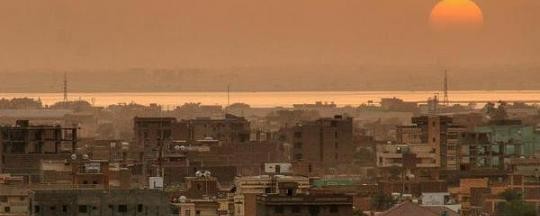Sudanese citizens of diverse backgrounds have criticized the decision taken by President Omar al-Bashir’s cabinet to treat South Sudanese nationals in its territory as foreigners and prosecute any South Sudanese without proper papers within a week.
The decision if implemented would affect at least 170,000 South Sudanese who arrived in Sudan since December 2013, few of whom have any official passport and hundreds of thousands more refugees living in the country since before that time.
South Sudanese who arrived in Sudan since the outbreak of civil war in December 2013 have never been given official refugee status but were theoretically entitled to the same rights as Sudanese citizens and received the same access to healthcare and other services.
Several activists, journalists and members of opposition parties slammed the decision taken by Sudan’s council of ministers to suddenly change the special status of South Sudanese refugees, while calling for its revocation.
On Sudan, the Sudanese Communist Party newspaper al-Maidan ran an editorial entitled, “Why are South Sudanese punished for other’s crime?” arguing that the decision is unfair and contradicts anything rational and humane.
The editorial added that most of the South Sudanese nationals who sought refuge in Sudan were forced by war in their country, saying the current situation in which they live wouldn’t allow them to process passports or other papers.
The party reaffirmed that it will stand firm against the government’s decision and demanded its revocation.
‘Double standards’
Hanadi al-Sadiq, a Sudanese journalist, described the government decision as “unfortunate”, at this particular time. She stressed that the South Sudanese nationals who are living in Sudan shouldn’t be victimized for what had been done by their government.
“The majority of South Sudanese people who are living in Sudan fled in thousands from war in their country for more than two years. So they are considered refugees unless our government wanted to give them another status and withdraw their refugee status,” said Hanadi.
“How our government looks at Egyptian nationals, Syrians, Yemenis and Ethiopians who are about to reach our population in number, or our government is still using double standards policy in dealing with crucial issues?” she asked.
Special relationship
For his part, Barnaba Marial Benjamin, South Sudan’s Foreign Minister, told Radio Tamazuj that the Sudanese government has the right to make its own decisions.
However, Marial said they feel that their relationship with Sudan is special and that the people of the two Sudans are one people in two states.
“The government of South Sudan has the right to enact its own laws because it is their country, but what I can tell them is that the relationship between Sudan and South Sudan is special, they are one people in two countries, so they cannot be treated like the other foreign nationals “he said.
The senior official noted that South Sudan will never deal with Sudan in such a way, referring to the Sudanese government’s decision to treat South Sudanese as foreigners. He pointed out that there are more than 280,000 Sudanese citizens who also took refuge in South Sudan due to war.
The South Sudanese diplomat called on the Sudanese government to allow humanitarian organizations to provide southerners with assistance.
Benjamin also urged the Sudanese government not to drag people in political matters, while stressing on resolving political issues through dialogue and diplomatic ways.
Sudan denies decision
But Sudan’s Minister of Information and government spokesman Ahmed Bilal Osman denied reports that the cabinet demanded the South Sudanese nationals to process proper papers within one week.
Speaking to Radio Tamazuj, Bilal said the decision only calls on the South Sudanese to register in the civil registry like the rest of Sudanese people so they can be treated as citizens.
“The South Sudanese will be registered as citizens, so any refugee should register his name, and the registration is very easy and free of charge,” he said.
However, the government official threatened to deal with those who do not hurry to register as foreigners.
Bilal also called on South Sudan’s government to send an envoy to respond to reports that the Juba government supports the Sudan People’s Liberation Army-North (SPLA-North). Bilal claimed that they have credible reports that confirmed the accusation.
The alleged support for rebels in Sudan by South Sudan was stated as one of the reasons for the cabinet’s decision.




